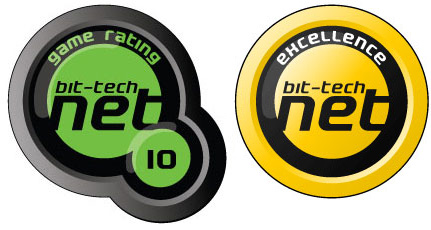
Middles
Braid has the standard platformer structure of Levels and Worlds, one inside the other. The aim of each level is to solve the various puzzles and collect the jigsaw pieces you need to complete a painting – though you can sprint to the finish if one puzzle is stopping you. Handy, as many of the puzzles will require some serious noggin’ scratching.The key to the game is time control. You have no lives – instead, like in Prince of Persia: Sands of Time you can just rewind your mistakes.
This is the most basic of Braid’s ideas; that you can rewind the world. Soon it starts layering in more ideas, which you’ll discover through experimentation mostly. Things that glow green are immune to your time control. Enemies with this aura will continue to march forwards even as you rewind – something that is key to solving the first World.
Later, things get more tricky. There’s a world where you control time simply by moving, for example. When you move right the world comes alive at normal speed. If you stop, the world freezes. If you move left then the world rewinds. Thus, this is a world where timing and ladder climbing become key tools to victory.
After that, you’ll be introduced to Shadow Time, where you can rewind at will and move freely, but a shadow of your future self will interact with the world just as you did before you rewound. It’s as trippy and difficult to comprehend as it is to explain.
As the levels get more and more complex and as the game changes on you between worlds, the game slowly gets more and more crazed. Here’s an example.
There was a point on Thursday where I was stuck. I’d played as far as I could and now had to backtrack to World 2 to get all the bits of that World’s jigsaw. I spent a good forty minutes on one puzzle. Then I cried and asked Jamie to come down and help me – something about his coder's brain seems to make him good at this game.
Jamie got stuck too. Richard came to help. Harry came to help. We sat around, fiddling and trying out new ideas. We all got stuck.
Rewind, run faster, jump, stop there, rewind, try again – no, you’re doing it wrong. Look, just give me the controller. For a good hour or so, that was the office conversation, except with a lot more swearing and some elaborate descriptions of what exactly I wanted to do to the game's designer.
Eventually, with the aid of Youtube, we figured out the one puzzle that had stumped us. We slapped ourselves, cursed, and swore at the game – but we weren’t angry. We were having fun. It’s at times like that that Braid is most playable; when you and some friends are trying to solve a puzzle that seems to have no solution and you enjoy spending time on it and with each other, cracking the riddle that has been put before you.
Even when, like us, you can’t do it and you have to use a hint video then the game still manages to be appealing and shows you that even in defeat the game can still be hugely enjoyable – not something you can say about a lot of games.
End
Braid does have a few problems despite our love for it. The oblique logic and lateral thinking that you need to learn how to apply too rapidly scales up from Easy to Murderous, for instance, and the game doesn’t always do a great job of introducing the new ideas.Worse, the game doesn’t even have a proper help page and there’s literally no introduction to the rewinding mechanic until you die for the first time – something you naturally spend your first go through the game trying to avoid.
The combined ingenuity of the gameplay and the gentle, nostalgic brilliance of the art and writing do manage to overcome this though and it’s a testament to the pacing of the game that you manage to learn all these elements without any decent manual or instruction.
Cerebral and startlingly playable, Braid is a throwback to the forgotten world of commercial platformers and proper adventure games where the puzzles were hard, but rewarding. At times it can be too difficult for its own good, but the bulk of the game isn’t weighed down by this and Braid instead manages to float upwards, to excellence.


MSI MPG Velox 100R Chassis Review
October 14 2021 | 15:04











Want to comment? Please log in.